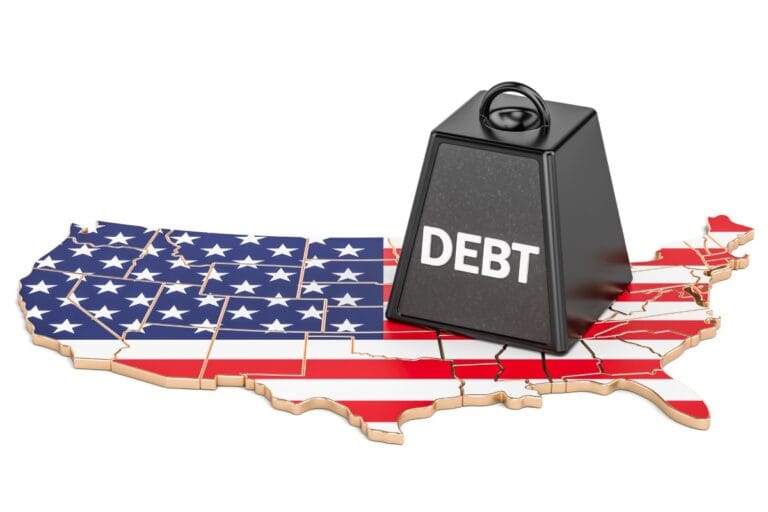Investing in Cryptocurrency: How To Start And What Are The Risks

Cryptocurrencies are a new and exciting investment, but they can be confusing and risky.
With the value of Bitcoin and other cryptocurrencies soaring, more and more people want to invest in them. But it’s important to remember that these are volatile investments, and you can lose money if you’re not careful.
This article will teach you everything you need to know about investing in cryptocurrencies. We’ll walk you through the basics, help you understand the pros and cons, what to buy for your needs, and show you how to protect your investment.
What Is Cryptocurrency
Cryptocurrency is digital money that uses cryptography for security. Cryptocurrency is based on blockchain technology, permitting distributed consensus even among parties who don’t trust each other.
Cryptocurrencies, also known as virtual currencies, are decentralized digital or virtual assets that a government or a financial institution does not control. Bitcoin was created in 2009 and is the most well-known cryptocurrency.
Cryptocurrencies are often bought and sold on centralized or decentralized exchanges. The exchanges allow investors to trade cryptocurrencies for cash or other cryptocurrencies.
Cryptocurrency exchanges also allow investors to margin trade, borrowing money to purchase more cryptocurrency with the hope that the cryptocurrency’s price will rise or fall, amplifying gains and losses. Margin trading can lead to high levels of risk and should only be undertaken by those who understand the risks involved.
The Risks of Investing in Cryptocurrency
As with any investment, there are risks associated with investing in cryptocurrency. These risks include:
Volatility
The prices of cryptocurrencies are very volatile and can fluctuate rapidly. The fluctuations may result in significant financial losses in a short period regardless of whether you have direct or indirect exposure.
For example, the price of Bitcoin often falls over 50% reasonably regularly. After reaching $69,000, the price is now around $38,000. Long-term cryptocurrency investors are used to the volatility. But it is something to be prepared for if you are new to cryptocurrency investing.
Exchange Hacking
Investors who invest in stocks treat crypto exchanges similar to brokerage accounts and leave their crypto coins on the exchanges.
For example, in 2014, Mt. Gox, a Bitcoin exchange, filed for bankruptcy after losing 850,000 Bitcoins to hackers. It resulted in investors losing billions of dollars. Although crypto exchanges have recently upgraded their security, you should not use them to store crypto coins after buying.
Fraud
According to the Federal Trade Commission, “Scammers even use online dating to draw people into cryptocurrency investment scams.” The SEC has identified Ponzi schemes involving virtual currencies and has issued an investor alert.
You must always trade only on reputable U.S. exchanges like Coinbase or BinanceUS . And don’t send crypto to strangers online.
Lack of Recoverability
A key that points to the location of the crypto on the blockchain protects your cryptocurrency assets. If the key is lost, it can’t be retrieved. If you lose access to the site where you store your key, you will no longer be in control of your cryptocurrency.
Not Insured
Cryptocurrencies held in a digital wallet or crypto exchanges do not currently have the same safeguards as other asset classes. The Securities Investor Protection Corporation typically insures stocks at U.S. brokerage firms (SIPC), and Federal Deposit Insurance Corporation (FDIC) protects U.S. bank accounts.
You are responsible for safeguarding your crypto assets.
Theft
If you or your cryptocurrency investment is defrauded or stolen, it will be hard to get it back. Because crypto transactions and users span the world and no central authority gathers crypto user data, using crypto may make recovering from fraud or theft more difficult.
Limited Use
Cryptocurrencies are not currently widely accepted as a form of payment. It means that they may not be suitable for all investors. Some major retailers, like Whole Foods, Nordstrom, Etsy, Expedia, and PayPal, are now letting people pay using crypto. Elon Musk also accepts crypto for Tesla and has Bitcoin on Tesla’s balance sheet.
Although companies have started adopting crypto, countries have not yet embraced Bitcoin. El Salvador is the only country at this point to adopt bitcoin as legal tender.
Despite these risks, investing in cryptocurrency could still be a good decision for some investors. Those who are comfortable taking on a higher degree of risk may find that cryptocurrencies offer a high potential return. Additionally, investors who understand the risks associated with this asset class are better positioned to make informed investment decisions. By educating themselves on the risks and benefits of cryptocurrency investing, investors can decide whether or not this is a suitable asset class for them.
Benefits of Investing in Cryptocurrency
There are also several potential benefits to investing in cryptocurrency despite the risks.
Potential for Appreciation
Cryptocurrencies also can provide a higher degree of returns than traditional assets. For example, Bitcoin has seen an average annual return of over 200% per year over the last decade.
Potential for Trading Profit
Some investors are enticed by the prospect of making money from price fluctuations. Individuals invest in cryptocurrency to speculate on the price. The volatility of crypto also leads to the potential for trading compared to other assets.
Tax Benefits
Since virtual currency is treated as a property by the IRS, wash trading rules which apply to stocks might not currently apply to cryptocurrency. Congress might try to eliminate this benefit in the future so talk to your tax advisor.
For example, one can buy Bitcoin for $40,000, and if the price falls to $35,000, you can sell it for a $5,000 loss. Repurchase it immediately for $35,000, and now you have a paper loss of $5,000 which could be applied as part of your tax-saving strategies.
Please note that no statement in this article or website should be considered tax advice. Always consult a licensed professional. Neither the author nor Financial Freedom Countdown are licensed professionals and should not be held responsible.
Inflation Hedge
Crypto enthusiasts have always considered Bitcoin as digital gold and a store of value. While that theory might have been accurate in the past, Bitcoin has not risen substantially with the onslaught of high inflation as expected. The advent of institutional investors and futures products might have turned Bitcoin into a risk asset similar to other investments. Since Bitcoin is a relatively new asset, we have yet to see it behave as the inflation hedge. Unfortunately gold has also performed poorly in the recent past as an inflation hedge.
Portfolio Diversification
If the lack of relationship with other asset classes continues, some investors feel that cryptocurrency may diversify a portfolio.
Decentralized Finance
DeFi stands for decentralized finance and is a term that covers financial services using blockchain technology. The goal of DeFi is to replace or provide an alternative to all aspects of centralized finance.
Digital financial products are now built on a blockchain, and entrepreneurs are creating several use cases for applications that currently perform poorly in traditional finance.
Passive Income
Staking, pooling, lending, and trading are just a few examples of how DeFi investors may profit by allowing their cryptocurrency to be used in the broader ecosystem. To earn interest on your positions, you must typically “lock it up” for some time. DeFi methods of earning passive income are popular among individuals who have the time and money to participate in them.
Privacy
Cryptocurrencies have the potential to offer a higher degree of privacy than traditional assets such as stocks and bonds. Bitcoin uses a decentralized ledger system known as a blockchain to record transactions and doesn’t have privacy features incorporated yet. Monero (XMR) and Zcash (ZEC) are some of the most prominent privacy coins.
Liquid With 24/7 Global access
Unlike conventional exchange-traded securities, cryptocurrencies may be purchased or sold at any moment. Unlike traditional stock or bond markets which trade only for specific hours and are closed on weekends and holidays, the crypto market is global and always open.
Asset Ownership
As long as you hold your private keys, crypto assets belong to the individual. Cryptocurrency, by definition, gives users complete control over their money without the need for ties to banks, regulators, or government policies. It is not easy for governments or banks to prevent you from legally transacting with other individuals.
Possibility of Future
With the world moving into the digital realm, it is only a matter of time before cryptocurrency assets represent a larger share compared to physical assets. We have already seen this transformation happen for art investing where legacy auction houses like Christie’s and Sotheby’s now recognize digital artwork in the form of NFTs.
Most of my companies in the moonshot portfolio, like Facebook and Microsoft, are pivoting to the metaverse. Although the current vision of Web2 companies might not line exactly with Web 3 metaverse crypto, it is still evolving.
Investing in cryptocurrency is associated with a high degree of risk and potential for high rewards. Before investing, those interested in getting started should educate themselves on the risks and benefits associated with this asset class.
How To Invest in Cryptocurrency
When you consider investing in cryptocurrency, one of the first things that come to mind is buying and HODLing (HODL is a typo for hold that is popular among the crypto community) a few crypto coins. Buying cryptocurrencies is probably the most frequent technique for adding crypto assets to your portfolio, but there are several alternative methods for doing so:
Buy Cryptocurrency Directly
The most common option is purchasing one or more cryptocurrencies directly from an exchange. Your alternatives range from well-known digital money such as Ethereum and Bitcoin to the meme coins like Doge.
Buying new coins before they are listed on exchanges is complicated. Developers offered new coins through an initial coin offering (ICO) or Initial Exchange Offering (IEO). Unfortunately, SEC considers ICOs and IEOs to be securities. Only investors meeting accredited investor qualifications could invest via a Simple Agreement for Future Tokens (SAFT). Based on court rulings regarding SAFT, the SEC is working on a Token Safe Harbor proposal.
U.S. residents should stick to regulated exchanges and buy tokens directly.
How to invest
Open an account at one of these exchanges
Invest in Cryptocurrency Companies
Several companies are participating in the current cryptocurrency environment.
You may invest in firms with a partial or complete focus on cryptocurrency. Businesses like Coinbase (COIN), Robinhood Markets (HOOD), SoFI (SOFI), Square (S.Q.), and PayPal Holdings (PYPL) offer options to trade cryptocurrency using their apps.
Chip manufacturers could be another option. Nvidia (NVDA) currently makes several chips for gaming which are also used in cryptocurrency mining rigs.
Marathon Digital Holdings (MARA) and Riot Blockchain (RIOT) are engaged in mining cryptocurrency.
Overstock (OSTK) is the fourth most popular e-commerce company with investments in blockchain technology and the broader cryptocurrency space through its “Medici Ventures” unit. The company has launched the tZero app as a consumer product for trading private securities and tokens in addition to regular cryptocurrencies like Bitcoin and other digital assets, including non-fungible tokens (NFTs).
Silvergate Capital (S.I.) provides financial infrastructure solutions and services to participants in the digital currency industry. They recently purchased blockchain payment network assets from Diem.
A few companies have also added cryptocurrency to their balance sheet. MicroStrategy Incorporated (MSTR) has been the most aggressive, with massive bitcoin holdings on its balance sheets. MicroStrategy founder Michael Saylor strongly believes in Bitcoin and even raised bond offerings to buy Bitcoin.
As cryptocurrency becomes more mainstream, these companies with diverse levels of crypto exposure could benefit from the trend.
Buying these companies exposes you to cryptocurrency investing, but buying actual crypto tokens is not the same. You might not get all the benefits of cryptocurrency investing by buying these company stocks.
Please note that these stock names are used as examples and should be considered a recommendation to buy, sell, or trade. Always consult a licensed professional. The author or Financial Freedom Countdown are not licensed professionals or investment advisors and should not be held responsible.
How to invest
Since these companies are exposed to cryptocurrency significantly, their price volatility is enormous. Dollar-cost averaging is the best method to buy volatile assets. I use M1Finance, which provides free dollar-cost averaging and automated buys with no fees for stocks. You can read my M1Finance review on how to get started.
Invest in Cryptocurrency Funds or Futures ETFs
Grayscale has Cryptocurrency funds for some of the most popular assets such as Grayscale Bitcoin Trust (GBTC) for Bitcoin, Grayscale Ethereum Trust (ETHE) for Ethereum, and Grayscale Litecoin Trust (LTCN) for Litecoin. Since Grayscale has closed-end funds, they trade at a premium or discount to the actual prices of the underlying asset.
Bitwise 10 Crypto Index Fund (BITW) seeks to track an index comprised of the ten most highly valued cryptocurrencies, screened & monitored for certain risks, weighted by market capitalization, and rebalanced monthly.
Bitwise Crypto Industry Innovators ETF (BITQ) invest in the companies leading the new crypto economy that generate most of their revenue from their crypto business activities.
Unfortunately, SEC has not approved any Bitcoin spot ETF. A futures product, ProShares Bitcoin Strategy ETF (BITO), was approved, but it doesn’t invest directly in Bitcoin. BITO invests in cash-settled, front-month Bitcoin futures contracts.
How to buy
Since these companies are exposed to cryptocurrency significantly, their price volatility is enormous. Dollar-cost averaging is the best method to buy volatile assets. I use M1Finance, which provides free dollar-cost averaging and automated buys with no fees. You can read my M1Finance review on how to get started.
Note: Buying these companies gives you exposure to cryptocurrency investing, but it is not the same as buying actual crypto tokens
Invest in a Cryptocurrency IRA
Cryptocurrency has become more mainstream, with advisors considering investing in retirement accounts.
A cryptocurrency IRA might be for you if you want to invest in cryptocurrencies while still receiving the tax benefits of an IRA. Using the services of a crypto IRA provider may also make it easier to keep your crypto assets secure without needing to deal with wallets.
Most IRA providers who specialize in digital assets provide high-value insurance to cover coins in the case of a breach. Different firms offer varying levels of coverage, so check the limits.
How to invest
The following three companies have simplified investing in cryptocurrency in retirement accounts.
Alto CryptoIRA is a self-directed IRA provider that provides 24/7 real-time trading and allows you to invest in alternative assets inside your IRA, such as cryptocurrency. You can rollover or transfer funds from an existing traditional, Roth, SEP, SIMPLE IRA, 401(k), or 403(b), subject to applicable legal limits.
- Low minimum investment of only $10.
- It has one of the largest coin selections of any crypto IRA (over 125 coins)
- No setup or monthly fees
- Because of the integration with Coinbase, you don’t have to go through the hassle of setting up an LLC, creating a wallet, or choosing an exchange.
- Solo 401(k) is not supported currently.
Bitcoin IRA is one of the world’s first cryptocurrency IRA platforms. It has over 100,000 account holders and is a full-service self-directed IRA provider.
- One of the first Crypto IRAs created
- Automated investment option since cryptocurrency is volatile and dollar-cost averaging help smoothen the ride.
- Offline storage of Crypto assets
- The high fees are a negative compared to other options like Alto Crypto IRA
- The number of coins is limited compared to Alto Crypto IRA.
- Solo 401(k) not supported
Rocket Dollar is a self-directed IRA and solo 401k provider. LLC creation is a complex process, but Rocket Dollar simplifies the process
- Permits Solo 401(k) in addition to Self Directed IRA (SDIRA).
- There is greater flexibility in alternative investments since you are not limited by only one exchange.
- Even if Rocket Dollar has a simplified process, you need to know how an SDIRA works to avoid breaking IRS rules.
- Higher fees compared to Alto CryptoIRA.
Become a Crypto Miner or Validator
Perhaps the most basic manner of investing in cryptocurrency is to mine it or function as a validator for a blockchain network. Miners and validators receive incentives in the form of cryptocurrencies for securing the network by validating the transactions that they can trade for other currencies or hold as investments.
How to invest
Proof of work cryptocurrencies requires enormous amounts of energy to mine. As the Bitcoin network expands, cryptocurrency mining becomes increasingly complex, and more processing power is needed. In the early days, the average person could mine bitcoin with just a laptop, but it is no longer doable owing to the high costs.
There are way too many individuals with better equipment and technology to compete. Due to the halving of Bitcoin, the mining complexity and cost to mine will increase, and your best bet is to join a mining pool.
Ethereum mining is still an option until ETH2.0 is released. Once can also stake 32 ETH as a validator. The proof of stake (POS) model requires less high-powered computing energy than proof of work (POW). But you must already own the cryptocurrency to participate. You have nothing to stake if you don’t have any crypto.
Free Cryptocurrency
Coinbase Earn lets you earn cryptocurrency by learning about the various crypto tokens. The rewards are small, approximately $3 for each cryptocurrency you know about, so don’t expect to get rich with crypto.
How to get
Sign up for a Coinbase account and click on the Learn tab.
How To Buy Cryptocurrency: Step By Step
After covering the basics of cryptocurrency investing, you may be wondering how to get started. Below are five steps that can help you get started with cryptocurrency investing
Step 1: Choose a cryptocurrency exchange
The first step is to pick a cryptocurrency exchange. A dependable, well-known exchange with many currencies is your best bet. Many different exchanges are available, and not all exchanges offer the same cryptocurrencies or trading pairs.
It is vital to select an exchange that provides the cryptocurrencies you are interested in investing in. Since the account opening process is free, you could open an account with the four most prominent regulated U.S. exchanges specializing in cryptocurrencies
Step 2: Create an account
The next step is to create an account on the cryptocurrency exchange. Most exchanges require users to provide personal information such as their name, email address, and phone number. Some exchanges also require users to undergo KYC and AML checks before trading.
Step 3: Deposit funds into your account
The next step is to deposit funds like U.S. dollars into your account on the cryptocurrency exchange. Most exchanges accept ACH bank transfers, wire transfers, or credit card payments. Once the funds have been deposited, you will be able to start trading.
It might take a few days to transfer money from your bank account to the exchange. Avoid using credit cards when buying cryptocurrency since you might need to pay additional fees for using a credit card instead of a bank account.
Step 4: Buy cryptocurrency
The final step is to buy cryptocurrency. It can be done by selecting the desired cryptocurrency and then selecting the “buy” button. The exchange will then provide you with a quote, and you can proceed to enter the amount of cryptocurrency you would like to purchase.
Step 5: Store securely
Congratulations! Now that you have purchased your first cryptocurrency, it is crucial to store it securely. While some individuals prefer storing crypto on the exchanges, there is a risk of hacking. It is always preferable to store cryptocurrency in your wallet. The only exception is if you are investing in retirement crypto accounts, check with your custodian.
For non-retirement cryptocurrency storage, hardware wallets are pretty secure. Your crypto isn’t stored where someone could access it online. You hold it on your private USB hardware wallet. Trezor and Ledger are the most prominent hardware crypto wallets. Always buy the hardware wallets directly from the company website and not via third-party resellers or websites to ensure authenticity.
Although online wallets on laptops and phones are popular, they are not the most secure.
How To Choose the Right Cryptocurrency To Invest In
Cryptocurrencies are a highly volatile asset class, and there are hundreds of different cryptocurrencies to choose from. So, how do you know which cryptocurrency is the right one to invest in? Below are a few factors you should consider when choosing a cryptocurrency to invest in.
Read the white paper that a cryptocurrency team publishes to understand the project. Look at the roadmap for a project and see if anything could spark an increase in demand. Investigate the team carrying out a project to see if the team members have the necessary skills. Look for a community of people already investing in cryptocurrencies and get their thoughts on it.
The first factor to consider is the market capitalization of the cryptocurrency. Market capitalization measures the size of the cryptocurrency market, and it can help you gauge the level of risk associated with investing in a particular cryptocurrency.
The second factor to consider is the trading volume of the cryptocurrency. Trading volume measures how much activity is taking place on a particular cryptocurrency exchange. A high trading volume typically indicates a lot of interest in cryptocurrency.
The third factor to consider is the price volatility of the cryptocurrency. Price volatility measures how much the price of a cryptocurrency fluctuates over time. A high degree of price volatility can be risky for investors.
By considering these three factors, you can decide which cryptocurrency is the right one for you to invest in.
Tips for Investing in Cryptocurrency
1. Do your research
Before investing in any asset, it is essential to do your research and understand the risks involved. It is especially true for cryptocurrency, a highly volatile asset class. Make sure to read up on the different cryptocurrencies available and understand the risks associated with each one.
2. Invest only what you can afford to lose
Cryptocurrency is a high-risk investment, and it is possible to lose all of your money. Invest only what you can afford to lose, and never invest more than you are comfortable losing.
3. Choose the proper cryptocurrency exchange
Not all cryptocurrency exchanges are created equal. Make sure to choose a reputable and well-established exchange. It will help to ensure the safety of your investment. U.S. residents should open accounts in regulated exchanges such as
4. Use a limit order
When buying cryptocurrencies, use a limit order instead of a market order. It will help you to buy cryptocurrencies at a lower price. Dollar-cost average your purchases if needed
5. Diversify your portfolio
Diversifying your portfolio is always a good idea, especially true for cryptocurrency. Investing in a variety of different cryptocurrencies can help to reduce your risk.
Not all tokens are available on every exchange. Hence it makes sense to sign up to all the exchanges and then decide on the listed tokens.
6. Be vigilant when trading cryptocurrencies
Cryptocurrency exchanges are often subject to hacks and thefts. Be vigilant when trading cryptocurrencies, and always keep your investment safe. Do not share your passwords with anyone or send cryptocurrency to strangers.
7. Store your cryptocurrency securely
It is essential to store your cryptocurrency in a secure wallet. It will help to protect your investment from hackers. Ideally, you should move your crypto coins to a wallet after buying
8. Stay up to date with news and events
Cryptocurrency is a highly dynamic and ever-changing asset class. It is essential to stay updated with the latest news and events in the cryptocurrency world. It will help you to make informed investment decisions.
9. Have patience
Cryptocurrency can be a highly volatile asset class, and prices fluctuate rapidly. It is crucial to have patience when investing in cryptocurrency. Prices may go down and up, but you might eventually see profits if you hold your investment for the long term.
Should You Invest in Cryptocurrency?
Investing is a highly personal decision. There are several income-producing assets, and your allocation to each should depend on your goals.
The first lesson involves your finances. The reality is that crypto is quite volatile, so you have to be financially prepared to invest in it. You should have a good grasp of your personal finance basics.
In addition to that, you should have other investments. You don’t want to put all your eggs in one basket, especially one like crypto. Understand that the crypto basket is a wild one, which could make anyone nervous. Monitor your liquid net worth and make sure you are invested only as your risk tolerance permits.
The more financially grounded you are, the less rocky the crypto road will be.
When you’re ready to learn how to start investing in cryptocurrency, you should feel comfortable losing some cash or seeing it drop in value. Crypto should be considered a long-term investment rather than a get-rich scheme. There’s no doubt that some have hit the jackpot, but that may not be your path.
You must have a good and reliable emergency fund before investing in a volatile investment opportunity like crypto. It may also be a good idea to have a good grasp on all of your debts.
Final Thoughts on Investing in Cryptocurrency
Investing in cryptocurrency can be a great way to make money, but it is crucial to approach it with caution. By following the tips above, you can ensure that you are investing in the right way and minimizing your risks. Investing in cryptocurrencies is not for everyone, so consider whether this type of investment would work well for you before making any decisions.
Frequently Asked Questions on Investing in Cryptocurrency
Is cryptocurrency a good investment?
Not everyone should invest in cryptocurrency. Cryptocurrency prices are volatile, making investing in crypto a poor choice for conservative investors. If you want to take on more risk as an investor, cryptocurrencies may be the way to go.
Can you get rich investing in cryptocurrency?
There’s no doubt that some cryptocurrency investors have made a fortune due to their cryptocurrency investments at the right time. However, past performance is not a guarantee of future performance. Cryptocurrency could rise much more than it has in the past or fall more than it did in the past.
Also, many investors have lost a substantial amount of money through cryptocurrency investing when they could not hold on to their investments during the massive price drops resulting from a crypto bear market.
If you don’t have a high-risk tolerance, cryptocurrency investments may not suit you. However, if you’re an investor willing to take significant risks to gain wealth, there are ways to reduce risk while still achieving good returns.
How much money do I need to buy cryptocurrency?
Bitcoin and other cryptocurrencies don’t need significant investment. You may purchase Bitcoin or another cryptocurrency with as little as $10 in your local currency through reputed U.S. exchanges like Coinbase.
Are there cryptocurrency ETFs?
Some ETF products provide indirect exposure to cryptocurrency and digital assets.
Several investment firms have submitted ETF applications to the SEC for cryptocurrency ETFs that would trade directly in U.S. markets based on the spot price of crypto, but none has been approved so far.
What are decentralized exchanges?
Decentralized exchanges will attract some investors that are more aligned with the crypto industry’s broader decentralized ideology. No individual, company, or organization controls the code underpinning a decentralized exchange. Peer-to-peer cryptocurrency transactions are possible because of the flexibility of the code and architecture.
Uniswap and SushiSwap are two popular DEX options.
There are advantages and disadvantages to relying on a DEX. Because there isn’t a single organization managing users’ assets, decentralized exchanges don’t offer hackers a giant honey pot of user funds. That said, bugs in the exchange’s code have allowed hackers to steal money from the protocols.
Because there is generally no stringent onboarding procedure that gathers personal information from consumers, users who lose funds on these exchanges have little chance for compensation. On the positive side, the lack of KYC with direct peer-to-peer transactions ensures that users cannot be unbanked.
Are cryptocurrencies safe investments?
Cryptocurrencies are high-risk investments with wild swings in the value of cryptocurrency assets. Cryptocurrency does not comply with traditional asset allocation methods because it is neither a tangible commodity like gold nor a conventional currency. Since the conventional valuation metrics do not apply, there are no strategies for determining its value.
Aside from volatility, there is a lack of regulatory infrastructure for cryptocurrencies. The Securities Investor Protection Corporation typically insures Stocks at U.S. brokerage firms (SIPC), and bank accounts at U.S. banks are frequently protected by the Federal Deposit Insurance Corporation (FDIC). Nothing similar exists for cryptocurrencies. Investors are entirely responsible for the security of their cryptocurrency spot holdings.
If you prefer safe investments, I-Bonds are a better option. Or depending on your risk profile you could consider crowdfunded real estate.
Do investors have to pay taxes when buying or selling cryptocurrency?
Cryptocurrency is considered property by the IRS, not money. Selling cryptocurrency for fiat currency (i.e., Dollars, Euros, etc.) or trading it for another crypto is treated as taxable by the Internal Revenue Service (IRS). Traders are responsible for keeping track of cost basis, gains, and other reporting. If you have any questions about the tax consequences of trading in cryptocurrencies, see a tax professional or IRS publication mentioned above.
What are Forks and Airdrops?
Forks and airdrops may not make you rich overnight, but they’re an excellent way to acquire extra crypto, which can help you establish long-term wealth. Airdrops are essentially marketing campaigns for new cryptocurrencies that developers conduct to increase awareness and understanding.
When an existing cryptocurrency changes or upgrades its protocol, it creates forks. It typically gives current owners of the old network free crypto coins as a bonus on the new network. For example, when Bitcoin forked, the forks of bitcoin like Bitcoin Cash were given to all holders of Bitcoin.
Forks or airdrops are a great way to get free cryptocurrency. IRS requires you to report any new crypto acquired via forks and airdrops for tax purposes.
How to make money with cryptocurrency?
The most common way for investors to make money when investing in cryptocurrency is trading. Like investing in stocks, crypto investors can buy low and sell high or continue to buy and hold as the price increases.
DeFi also opens up several ways to make money with cryptocurrency. Staking, pooling, lending, and trading are just a few examples of how DeFi investors may profit by allowing their cryptocurrency to be used in the broader ecosystem. To earn interest on your positions, you must typically “lock it up” for some time. DeFi methods of earning passive income are popular among individuals who have the time and money to participate in them.
How does blockchain work?
Cryptocurrencies are based on blockchain technology. Blockchain is a type of database that keeps track of and timestamps every interaction. A blockchain is best thought of as a running record of transactions. When a blockchain database powers cryptocurrency, it records and verifies transactions in the currency, ensuring that the money’s movements are genuine.
Distributed computer networks maintain many crypto blockchain databases. Many duplicated computers run the database, ensuring that each transaction is correct. If there’s a problem, the networked computers must find a solution.
How do you mine cryptocurrency?
Mining is a way for proof of work (POW) cryptocurrencies to secure the network. Mining rewards individuals who verify transactions on the blockchain. Miners involved with Bitcoin, for example, solve highly complex mathematical issues to validate transactions. If they’re successful, miners are rewarded with a set amount of bitcoins.
What are altcoins?
An altcoin is any cryptocurrency that is not Bitcoin. Traders used to use the phrase in a derogatory manner many years ago. Because Bitcoin was the most popular and prominent crypto, users compared everything else to it. As a result, any product that was not Bitcoin was referred to as an altcoin.
With the advent of Ethereum having different use cases than Bitcoin, the crypto community has become more open to other cryptocurrencies, including meme coins like Dogecoin.
How do I cash out cryptocurrency?
Cashing out cryptocurrency involves steps similar to buying crypto but in reverse order.
1) Move your crypto from your wallet to an exchange.
2) Sell based on your desired price by exchanging your cryptocurrency for your local currency.
3) Transfer funds from your cryptocurrency exchange account to your bank account via ACH bank transfer.
How do you store your cryptocurrency?
You can’t learn how to start cryptocurrency investing without understanding that you need a place to store your digital coins.
You’ll need a digital wallet. The name is a little misleading because it doesn’t store your coins. A wallet provides you with a key to access your digital currency. Your coins are floating around online within the blockchain, which is entirely secure. There are several digital wallets out there, and they all have different perks. It would help if you learned about these after you start crypto investing in having a place to store your coins.
Desktop Wallets
The desktop wallet is stored on your personal computer. It isn’t stored online where a cybercriminal can steal it. While this may be one of the safest options, it comes with a few drawbacks.
You can only access your digital coins if you’re by your computer. Desktop hard drives could fail, and if that happens, you can lose everything if you didn’t save it.
Online Wallets
Online wallets are more convenient. You can access your wallet wherever you want, and it’ll always be there. Some online wallets offer excellent security features, although the risk of online hacks persists.
The most popular online wallet is MetaMask, which allows users to store and handle their cryptocurrencies through a web browser extension or a mobile app.
Mobile Wallets
Mobile wallets are similar to desktop wallets, except that it isn’t your desktop this time but your cellphone where you’ll have your crypto. You will have to do a lot to keep your cellphone safe, like installing security features to ensure no one gains access to your phone. You will have to pay for a service that’ll help you find your cellphone should you lose it. Even if you do all of this, it’s a good idea to somehow back your crypto data up to be safe. You don’t want to lose your crypto wallet because you’ll have no way of getting it back.
Hardware Wallets
Hardware wallets are pretty secure because your crypto isn’t stored where someone could access it online. You hold it on your private hardware wallet, which you can connect via a USB port to a computer.
You can access your crypto from virtually anywhere since all you need is your USB hardware wallet and a way to connect it. You can use a laptop or a public computer if you need to use one. It’s essential to keep this crypto hardware wallet as safe as can. If you lose it and have no backup of the passphrase, you’ve lost everything.
Trezor and Ledger are the most prominent hardware crypto wallets. Always buy the hardware wallets directly from the company website and not via third-party resellers or websites to ensure authenticity.
Each wallet includes a private key that protects your cryptocurrency and proves ownership. The recovery phrase is a human-readable version of your private key, a list of 24 words in a specific order that can assist users to regain possession of their digital assets if they lose their wallet password or their computer crashes. Make sure you memorize it or store it in a secure location. If anyone has access to the recovery phrase, they can steal your crypto even if they do not have access to your wallet.

John Dealbreuin came from a third world country to the US with only $1,000 not knowing anyone; guided by an immigrant dream. In 12 years, he achieved his retirement number.
He started Financial Freedom Countdown to help everyone think differently about their financial challenges and live their best lives. John resides in the San Francisco Bay Area enjoying nature trails and weight training.
Here are his recommended tools
Personal Capital: This is a free tool John uses to track his net worth on a regular basis and as a retirement planner. It also alerts him wrt hidden fees and has a budget tracker included.
Platforms like Yieldstreet provide investment options in art, legal, real estate, structured notes, venture capital, etc. They also have fixed-income portfolios spread across multiple asset classes with a single investment with low minimums of $10,000.






